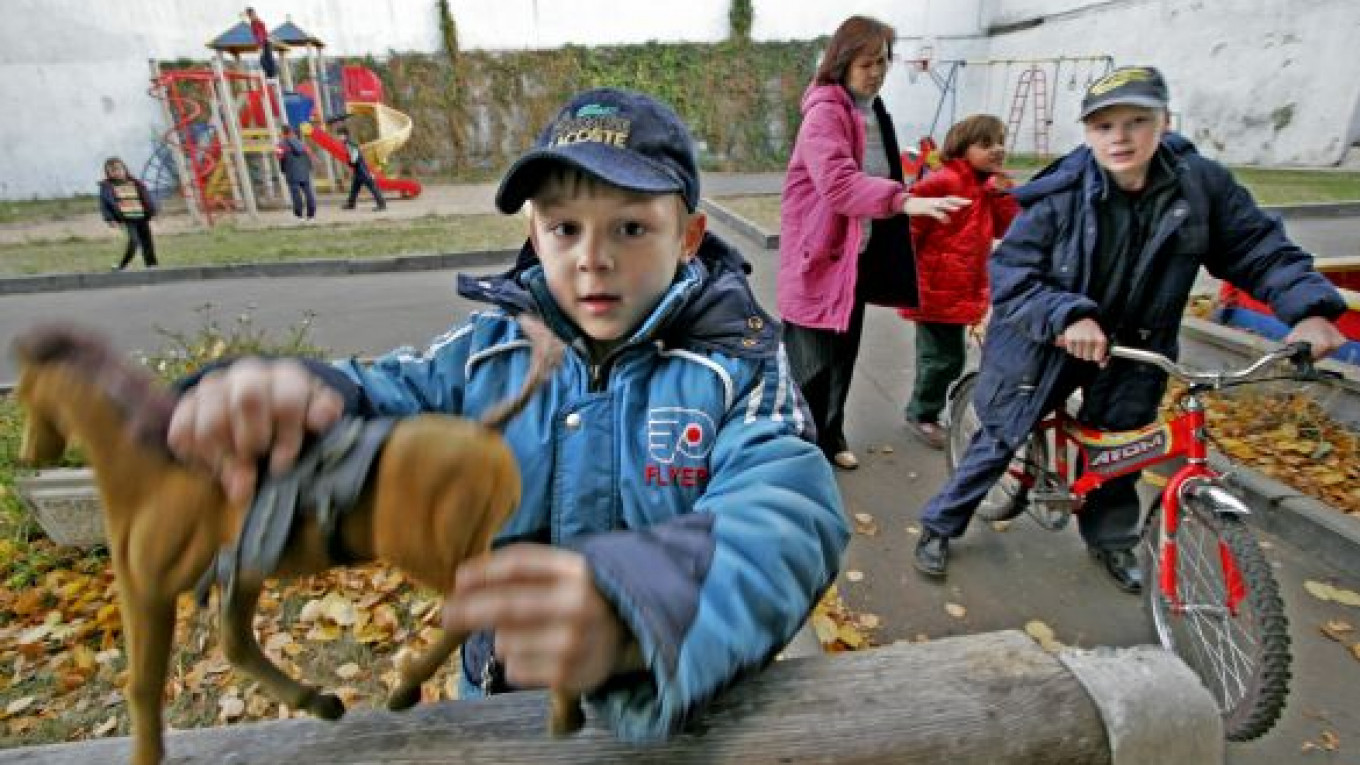Paralympics champion Jessica Long – who was abandoned by her Russian mother at birth and grew up in the U.S. – may be allowed to adopt a Russian orphan if she first obtains Russian citizenship, children's rights ombudsman Pavel Astakhov said Friday.
During a recent visit to the Siberian city of Irkutsk, where she was born, Long said she would like to adopt a child from a local orphanage. But Russia's recent law prohibits her from doing that unless she obtains Russian citizenship first, Astakhov said, Itar-Tass reported.
"American citizens are not allowed to adopt Russian children nowadays," Astakhov told reporters. "If she obtains Russian citizenship, then she's welcome to do so."
Long's Russian mother abandoned her at birth because of a disability that required her lower legs to be amputated. She was adopted by a U.S. family from Maryland, went on to excel in a number of sports and became the world record holder in 13 Paralympic events.
Astakhov said there were other ways for foreigners to help Russian orphans without adopting them.
"There are countries that do that without stripping children of their motherland," he said.
Long, 21, maintained her Russian citizenship until coming of age, Astakhov added.
Astakhov also said that Russia aimed to halve the number of its orphanages by 2018, "by placing children with families," RIA Novosti reported.
Astakhov did not elaborate on the details of how that goal would be achieved.
Adoption and foster care rates in Russia have declined over the past few years, the report said.
Russian families adopted 58,000 children in 2012, down from almost 110,000 in 2009, according to Education and Science Ministry statistics released earlier this year. Another 109,000 Russian children are still waiting to be adopted, according to an official list on the ministry's website.
A Message from The Moscow Times:
Dear readers,
We are facing unprecedented challenges. Russia's Prosecutor General's Office has designated The Moscow Times as an "undesirable" organization, criminalizing our work and putting our staff at risk of prosecution. This follows our earlier unjust labeling as a "foreign agent."
These actions are direct attempts to silence independent journalism in Russia. The authorities claim our work "discredits the decisions of the Russian leadership." We see things differently: we strive to provide accurate, unbiased reporting on Russia.
We, the journalists of The Moscow Times, refuse to be silenced. But to continue our work, we need your help.
Your support, no matter how small, makes a world of difference. If you can, please support us monthly starting from just $2. It's quick to set up, and every contribution makes a significant impact.
By supporting The Moscow Times, you're defending open, independent journalism in the face of repression. Thank you for standing with us.
Remind me later.






